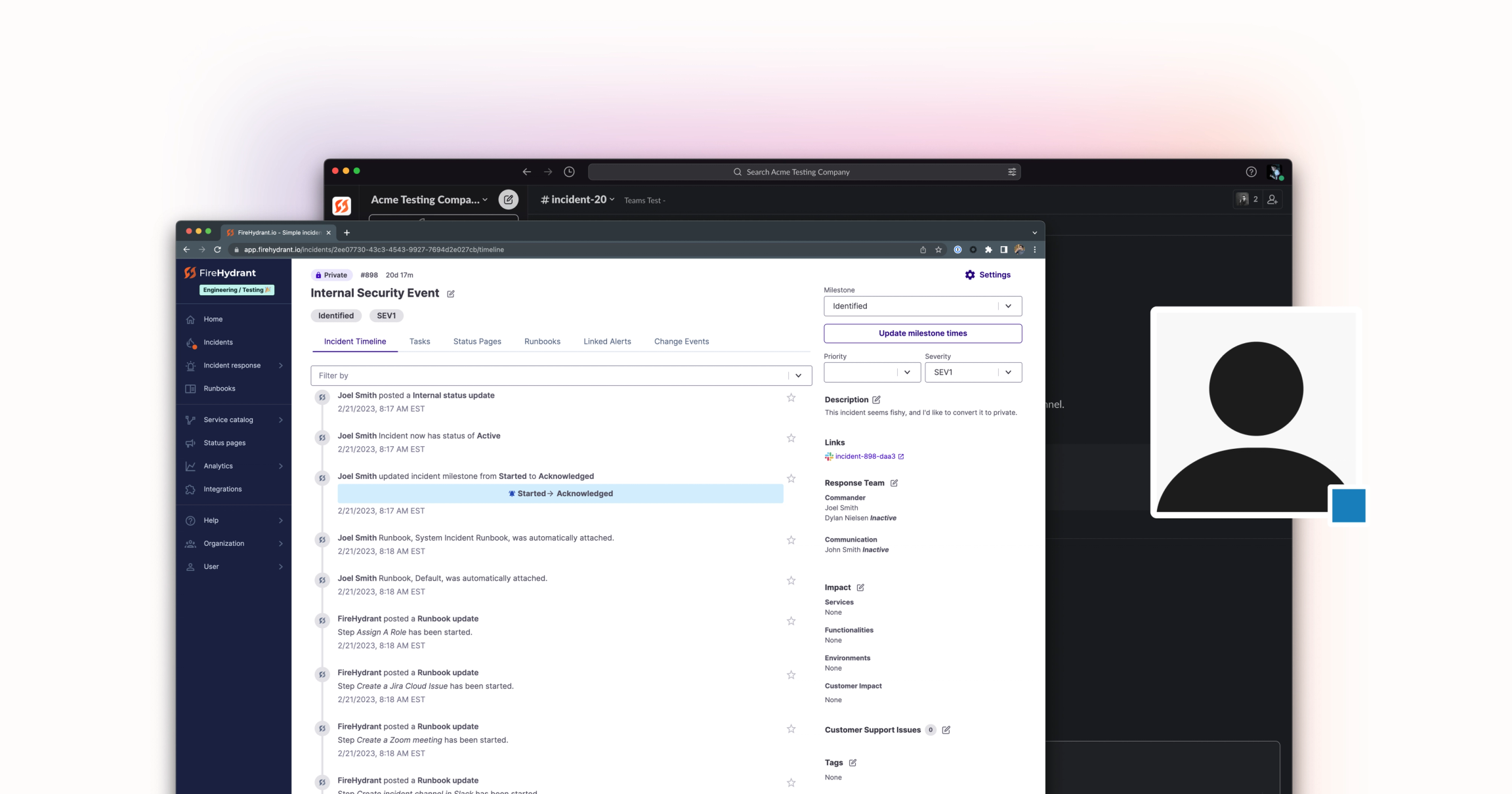
Timeline Messages from Slack Connect Users
- We added support for ingesting messages from Slack Connect users into the incident timeline, ensuring that even more context is captured during an incident.
Secrets Management and JSON Headers for Webhooks in Runbooks
- We added the ability to add and manage secrets to be used when authenticating and securing webhooks in the Send a Webhook runbook step. These secrets can be added to the JSON Headers field using a liquid template to pull them in
{{ secrets.your_secret_name}}
Update Channel Names in Runbooks
- We updated our Create Channel runbook step to allow you to rename the channel based on new conditions or changes to the incident. You can now add this step multiple times in an incident and subsequent runs of this step will update the channel name.
Priority Field from OpsGenie in Runbooks
- We added the priority field from OpsGenie alerts into the Create OpsGenie Incident runbook step
Login Redirects URLs
- We updated our login flow to capture a redirect url, ensuring logged out users return to the page they’re expecting to after logging in
API Documentation Updates
- We fixed several type-based issues in our documentation
Bugs and Fixes
- We fixed a bug with timeline chronology when updating incident details
- We fixed an issue with editing timeline events during retros
- We fixed a UI sizing issue with conditions labels
See FireHydrant in action
See how our end-to-end incident management platform can help your team respond to incidents faster and more effectively.